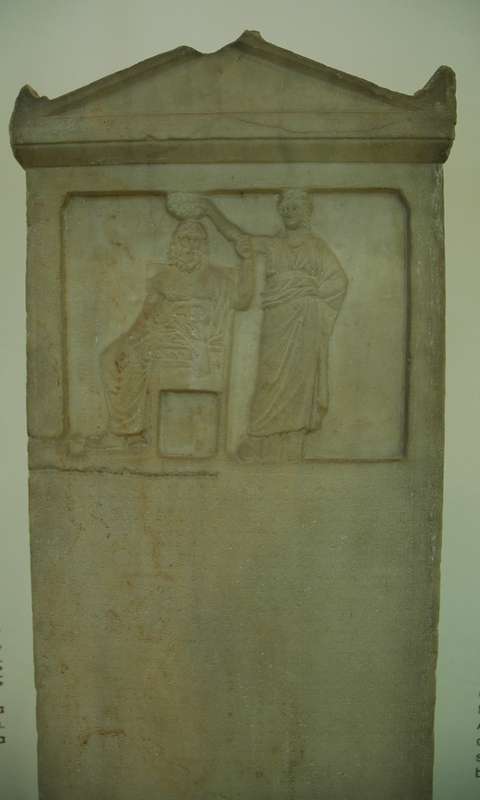In the archonship of Phrynichus, in the ninth prytany of Leontis, for which Chaerestratus son of Ameinias of Acharnae, was secretary;
Menestratus of Aixone, of the Proedroi, put the question to a vote;
Eucrates son of Aristotimus of Piraeus, made the motion;
With good fortune of the Demos of the Athenians be it resolved by the Nomothetai:
If anyone rises up against the Demos for tyranny or join in establishing the tyranny or overthrow the Demos of the Athenians or the democracy in Athens, whoever kills him who does any of these things shall be blameless.
It shall not be permitted for anyone of the Councilors of the Council of the Areopagus – if the Demos or the democracy in Athens has been overthrown – to go up into the Areopagus or sit in the Council or deliberate about anything.
If anyone – the Demos or the democracy in Athens being overthrown – of the Councilors of the Areopagus goes up into the Areopagus or sits in the Council or deliberates about anything, both he and his progeny shall be deprived of civil rights and his substance shall be confiscated and a tenth given to the goddess.
The secretary of the Council shall inscribe this law on two stelai of stone and set one of them by the entrance into the Areopagus (that entrance near where one goes into the Bouleuterion) and the other in the Ekklesia.
For the inscribing of the stelai, the Treasurer of the Demos shall give twenty drachmae from the moneys expendable by the Demos to decrees.
